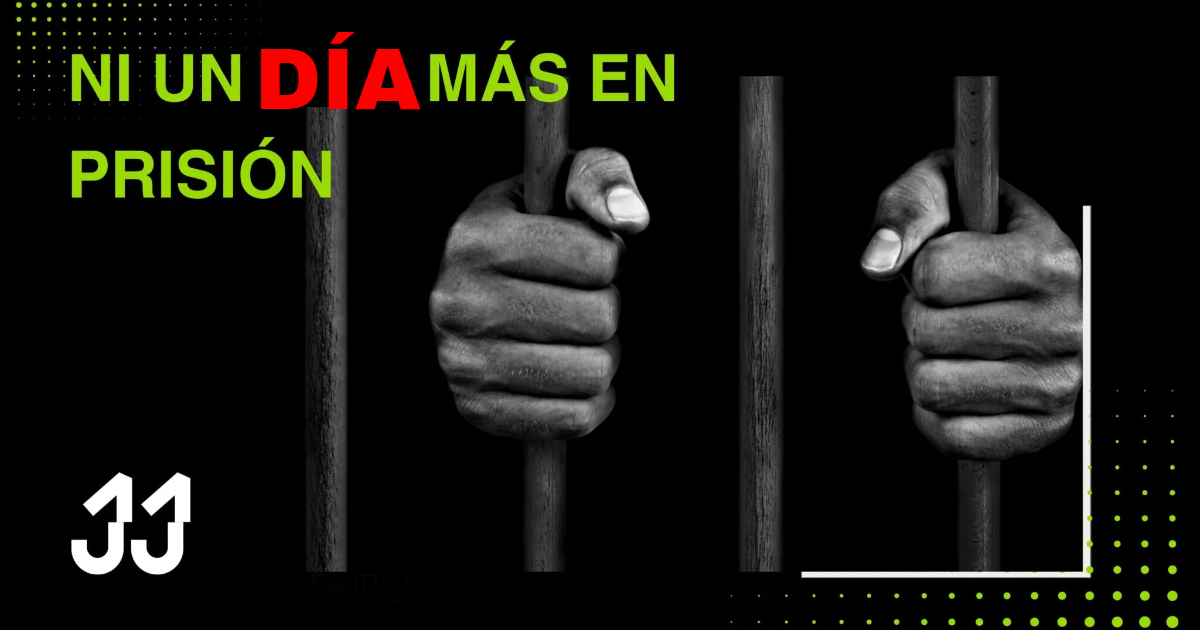
Related videos:
The recent announcement by the Cuban regime regarding the release of 553 prisoners is generating controversy and intense debate, considering the expectations of Cuban civil society to see hundreds of political prisoners, unjustly condemned for exercising their rights to protest or free expression, out of prison.
The decision comes in a context of significant political and diplomatic changes: on January 20, Donald Trump will once again assume the presidency of the United States. During his previous term, Trump was the one who reinstated Cuba on the list of state sponsors of terrorism in 2021 and
The current gesture of the Cuban regime, which coincides with the exclusion of the island from that list by the Biden administration and the lifting of certain sanctions, could be interpreted as an attempt to take advantage of the last days of a more flexible Democratic administration before the return of a more aggressive policy by Trump, or as a gesture of goodwill for dialogue extended to the Republican in order to take the initiative in the tense relations.
However, questions about who will benefit from this measure persist: Will they be political prisoners or common criminals?
Given that the Cuban regime considers those convicted for political reasons as criminals—specifically individuals who threaten state security—civil society wonders whether the dictatorship will truly release political prisoners or if it will resort to rhetorical tricks to free common criminals instead.
Political prisoners in Cuba: the visible face of repression
Since 2018, political repression in Cuba has gained international attention, especially following the protests of July 11, 2021 (11J).
These demonstrations marked a turning point, with hundreds of arbitrary detentions and summary trials resulting in severe sentences for crimes such as "public disorder" or "contempt," which were used to criminalize dissent.
Organizations like Prisoners Defenders and Amnesty International have documented that at least 550 people remain in prison for political reasons. Among the most visible cases are:
1. José Daniel Ferrer, leader of the Cuban Patriotic Union (UNPACU), a symbol of the opposition resistance in the eastern part of the country.
2. Luis Manuel Otero Alcántara, an artist of the San Isidro Movement, imprisoned multiple times for his cultural and political activism.
3. Maykel Castillo Pérez (Osorbo), rapper and co-author of the song "Patria y Vida," whose work became an anthem of protest.
4. Félix Navarro and Sayli Navarro Álvarez (father and daughter), coordinator of the Pedro Luis Boitel Movement for Democracy and member of the Ladies in White, respectively.
4. 11J Protesters, who have been sentenced to exemplary penalties aimed at deterring future demonstrations, and whose relatives have highlighted and denounced the injustice committed by the regime.
These cases, along with the dozens of activists and independent journalists under surveillance or house arrest, represent a continuous violation of fundamental rights on the island.
A strategic gesture in the face of an imminent political change?
The regime's announcement appears to be aligned with the attempt to capitalize on the final days of the Biden administration, which took a more conciliatory stance toward Cuba, excluding the country from the list of state sponsors of terrorism and lifting some sanctions, reportedly in exchange for the release of political prisoners.
However, with Donald Trump's return to the White House in five days, this scenario could change radically.
Trump was the architect of the toughening of policies towards Cuba, including the reinstatement of the island on the list of state sponsors of terrorism, as well as the implementation of new sanctions that hit the Cuban economy hard.
His return to the presidency will likely mean a return to this hardline stance, decreasing the chances for future diplomatic gestures between the two countries.
In this context, the regime's decision to release prisoners could be seen as an attempt to show goodwill before the opportunity for a more flexible dialogue closes.
However, the nature of the releases is key: releasing only common criminals and not political prisoners would send a clear message that the regime has no intention of changing its repressive policy.
The impact of international surveillance
Amnesty International and other organizations have been . They argue that any amnesty that does not include activists, journalists, and imprisoned demonstrators would be an empty gesture, designed solely to enhance the regime's image in front of the international community.
The impending change of administration in the United States adds a layer of uncertainty. While Biden prioritized dialogue and gestures of openness, Trump is expected to adopt a more confrontational stance.
This context makes it even more urgent for the international community to maintain pressure to ensure that the announced releases include those who are imprisoned for exercising their fundamental rights.
A real change or more propaganda?
The Cuban regime's decision to release 553 prisoners raises legitimate doubts about its true intentions. Is this a sign of openness or merely a tactic to buy time before the return of a less favorable political landscape?
The answer to this question will depend on who benefits from this amnesty. If political prisoners are not among those released, it will be clear that the regime prioritizes internal control and evading international pressure while perpetuating its repressive system.
In this delicate moment, international oversight and constant denunciation are essential to ensure that the fight for human rights in Cuba is not overshadowed by opportunistic political strategies.
Filed under: